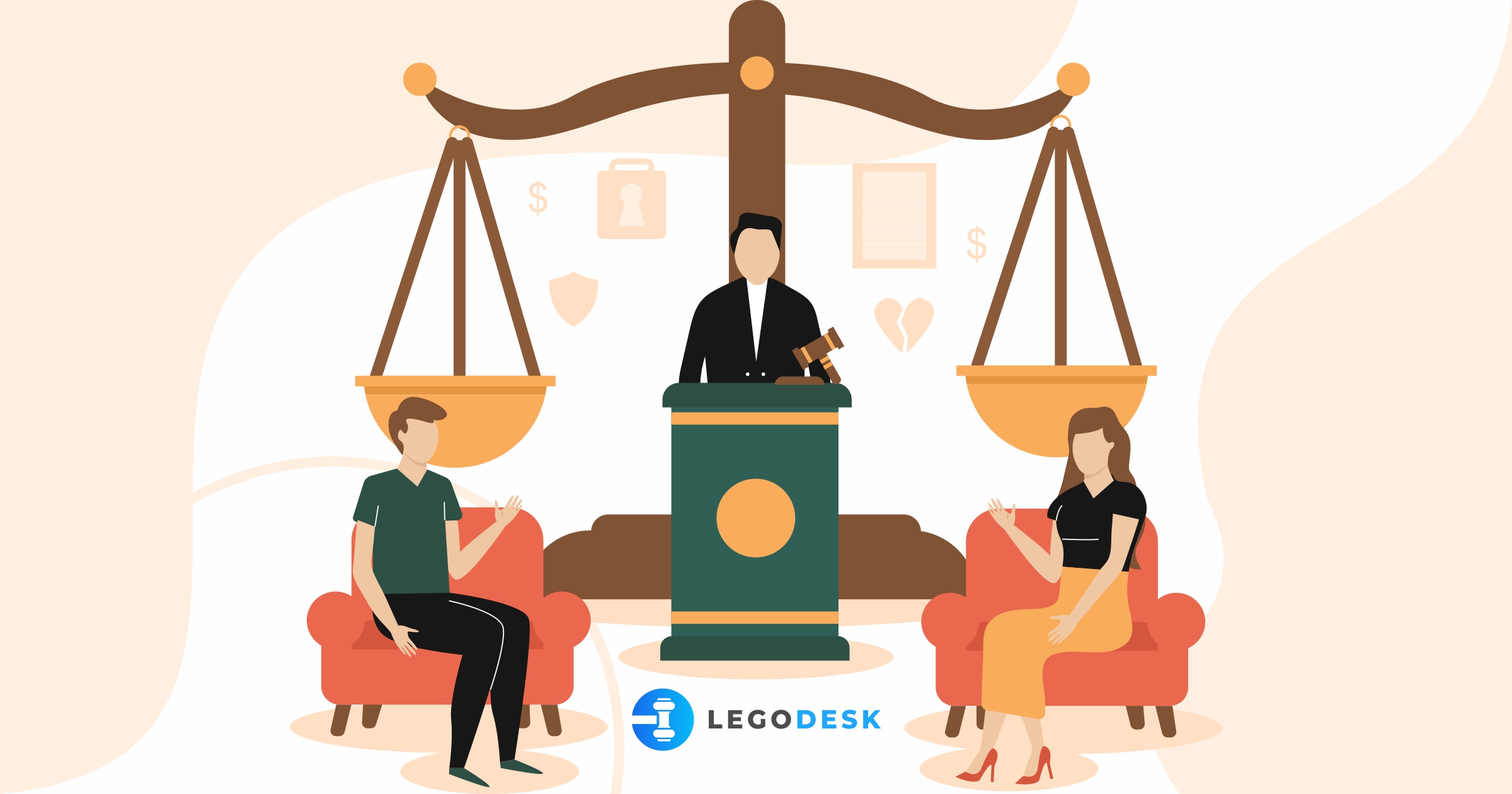Divorce is never easy, emotionally or financially. When you’re in the midst of it, the costs can add up quickly, sometimes catching you off guard. Knowing what to expect can help you plan and make informed decisions. Let’s break down the real cost of divorce and explore ways to manage these expenses.
Legal Fees

Legal fees are among the primary aspects that affect the cost of divorce overall. Hiring a divorce lawyer can be expensive, but it’s often necessary to ensure your rights are protected. The average hourly rate for divorce lawyers can range from a few hundred dollars or more, depending on their experience and your location. The total cost can vary widely, but you might expect to pay thousands of dollars, especially if the divorce is contested.

Mediation And Counseling Costs
If you and your spouse are open to negotiation, mediation can be a less costly alternative to going to court. Mediation fees are typically lower than legal fees, ranging only a couple of hundred dollars per hour. While this can still add up, it usually results in a faster and less adversarial process, which can save money in the long run. Additionally, couples counseling may be necessary, with the costs depending on the therapist and your location.

Court Administration Expenses
Even if you manage to avoid high legal fees, court costs and filing fees are unavoidable. These are around a few hunderd dollars, depending on your county and state. If your divorce is complicated and involves multiple court hearings, these costs can increase significantly.
Division Of Assets After Divorce
The division of assets can be one of the most contentious and costly aspects of a divorce. This process often involves valuing and dividing property, bank accounts, retirement funds, and other assets. If you own a home, you may need to sell it and divide the proceeds, or one spouse might buy out the other’s share. The cost of appraisals, refinancing, and other related expenses can add up quickly.
Required Child Support And Alimony
If you have children, child support is another significant expense to consider. The amount of child support is typically determined by state guidelines and can vary based on your income and the number of children you have. Alimony, or spousal support, is another potential expense, particularly if one spouse earns significantly more than the other. The amount and duration of alimony payments depend on various factors, including the length of the marriage and the financial needs of both parties.
Tax
Divorce can have substantial tax implications. For instance, alimony payments are typically tax-deductible for the payer and taxable income for the recipient. Additionally, the division of assets can result in capital gains taxes if property or investments are sold. It’s essential to consult with a tax professional to understand how your divorce will impact your taxes and to plan accordingly.
Insurance
Health insurance is another critical consideration. If you were covered under your spouse’s health insurance plan, you’ll need to find new coverage, which can be costly. It’s crucial to budget for these additional health insurance costs when planning for divorce.
Living Expenses After Divorce
After the divorce, you’ll need to adjust to living on a single income. This change can be particularly challenging if you were previously relying on your spouse’s income. You’ll need to budget for all your living expenses, including housing, utilities, groceries, and other necessities. Creating a detailed budget can help you manage your finances and adjust to your new financial situation.
Psychological And Emotional Costs
While not a direct financial expense, the emotional and psychological costs of divorce can be significant. Divorce is a stressful and emotional process that can impact your mental health and overall well-being. It’s essential to seek support from friends, family, or a therapist to help you cope with the emotional challenges of divorce. Taking care of your mental health is crucial during this difficult time.
Hidden Costs Of Divorce
Beyond the obvious expenses, divorce can bring about several hidden costs. For instance, if you need to move, there are moving expenses, security deposits, and possibly higher rent or mortgage payments. You may also need to purchase new furniture, household items, and other essentials.
If you have children, you might face additional childcare costs if you need to work more hours or if your support network changes. Extra-curricular activities, school supplies, and other child-related expenses can also add up.
Moreover, your lifestyle may need adjustments. You might need to scale back on luxuries or non-essential spending to accommodate your new financial reality. These hidden costs can be easy to overlook but can have a significant impact on your overall financial health.
Custody And Education For Children
Custody arrangements can also have financial implications. If you have primary custody, you may face higher living expenses to accommodate your children. Conversely, if you have visitation, travel costs can add up, especially if you live far from your children.
Education costs are another consideration. Private school tuition, tutoring, and college savings plans may need to be reevaluated and adjusted to fit your new financial situation. Planning ahead and discussing these costs with your ex-spouse can help ensure your children’s educational needs are met.
Minimizing Divorce Costs
Although divorce is costly, there are ways to lower down the associated expenses with it. Here are a few tips:
- As mentioned earlier, mediation is typically less expensive than litigation. If possible, try to resolve issues through mediation.
- If you and your spouse can communicate effectively, negotiating directly can save you money on legal fees.
- Make use of a collaborative divorce process. This process involves both parties working together with their lawyers to reach an agreement, often resulting in lower costs.
- Be organized. Keeping detailed records and being organized can save time and reduce legal fees.
- Understand your financial situation. Why? It’s because having a clear understanding of your financial situation can help you make informed decisions and avoid costly mistakes.
- Seek expert guidance. Consulting with financial and tax professionals can help you understand the implications of your divorce and plan accordingly.
To Conclude
Divorce is a challenging process that comes with significant costs, both financially and emotionally. By understanding the expenses involved and planning accordingly, you can manage these costs and move forward with your life after divorce.

